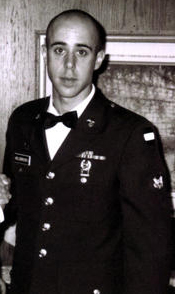 This is our second interview in a series of interviews with former Guantanamo Bay detention camp guards and detainees.
This is our second interview in a series of interviews with former Guantanamo Bay detention camp guards and detainees.
Several current and former U.S. soldiers have expressed interest in speaking publicly about their experience at Guantanamo: including a CIA psychologist, interrogators, guards, and medical personnel. They are disgusted with what they witnessed or took part in at Guantanamo, but declined my request for an interview, because they fear opening themselves up to prosecution by the US government, which required them to sign a Non Disclosure Agreement.
I was also told that many are afraid of being prosecuted for war crimes, since low level soldiers are often the ones who shoulder the brunt of punishment and backlash; whereas higher ranking officials seem to escape scrutiny completely.
Terry Holdbrooks is a former guard at the Guantanamo Bay detention camps. He was stationed at GTMO in 2003 and 2004. During his time there, he converted to Islam. He is now a vocal critic of the camp. You can find him on twitter @BrotherMustafa
"We don’t believe the government anymore. All their decisions are just ink on paper for us." - Omar Ali, a Kurdish-Syrian activist.
Thirteen human rights groups have signed a press release condemning the Arab League's support of Syria's bid for a seat on the UN Human Rights Council. The regional group for Syria has the same number of nominations as they have seats available, so at this point Syria seems guaranteed a seat. While the human rights groups feel that support for Syria's bid is an "an insult to the UN body and its mission", a quick glance at the current membership shows Syria, who have killed some 220-250 of their own citizens in recent weeks and detained and tortured close to a thousand, should feel right at home. While Libya was recently suspended, the council still has Bahrain, Saudi Arabia, the United States, Gabon, Nigeria, Cameroon and enough other countries with sordid human rights records to constitute a jury of their peers. They need support from half of the members, when the vote takes place on May 20.
SANA state news agency today published the decrees on ending the state of emergency, abolishing the Supreme State Security Court, and regulating the right to peaceful demonstration, signed today by President Bashar al-Assad. Opposition activist Haitham al-Maleh told Reuters the move was "useless", and "The problem is that the ruling elite and the security have put their hands on the judiciary, and that other legislation they had introduced exempted the security forces from being held accountable to law."
Abdel Halim Khaddam, a former Syrian vice president based in Paris told BBC Arabic: "The crisis in Syria has nothing to do with the presence or absence of the state of emergency. It is not the state of emergency that arrests people and takes them to jail and it is not the state of emergency that fires on people. ... Assad has exposed himself completely before the people, through the crimes committed by his security apparatus. This has created a deep feeling among Syrians that the continuation of the regime would be a catastrophe. The depth of the rift between the regime and the majority of the people... will lead to the collapse of a regime desperately struggling to survive."
Yesterday protests continued unabated by the announcement, as the country gears up for what both sides are expecting to be a huge demonstration with huge retaliation. This week has seen a concentration on government crackdown on students and universities, with many arrested and beaten. Security is readying for Friday, when protests are expected in 40 or more cites, by deploying armed security in plainclothes everywhere protests are expected. Tanks are reported in Tahrir Square in Homs.
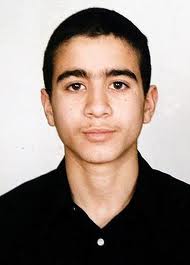 Defense attorneys for Canadian child soldier Omar Khadr, filed a motion yesterday requesting that Khadr's sentence be reduced from eight years to four. Defense claims that prosecutors had misled them into believing Khadr's plea bargain would be thrown out if they challenged the prosecution's star witness, a psychiatrist named Dr. Michael Welner. According to the motion, Army Col. Patrick Parrish, the judge presiding over Khadr’s case, joked that “Dr. Welner would have been as likely to be accurate if he used a Ouija board”.
Defense attorneys for Canadian child soldier Omar Khadr, filed a motion yesterday requesting that Khadr's sentence be reduced from eight years to four. Defense claims that prosecutors had misled them into believing Khadr's plea bargain would be thrown out if they challenged the prosecution's star witness, a psychiatrist named Dr. Michael Welner. According to the motion, Army Col. Patrick Parrish, the judge presiding over Khadr’s case, joked that “Dr. Welner would have been as likely to be accurate if he used a Ouija board”.
Dr. Welner, who was called to assess the future danger to be expected from Khadr, wrote in his response to the clemency request, “I encountered.... an area where no systematic guidelines are chronicled and no actuarial measures are available.” Khadr’s lawyers write that Dr. Michael Welner's testimony was “unscientific” and “designed solely to inflame and mislead the jury.”
Welner's testimony, based on a brief interview with Khadr, covered a great deal of territory, including statements that Khadr's family was a big influence on him (he was captured at 15 and spent the ensuing eight years in Guantanamo), and simultaneously that because he had been imprisoned without trial in maximum security torture facilities for eight years, he had been "marinated in jihad" and could not be "deradicalized". Despite the statement that he was radicalized at Guantanamo, he could not be released to Canada because of insufficient "deradicalization" programs in Canada. Welnar also stated that a devout Muslim would not fit in in Canada.
 The Syrian government today passed a bill that lifted the country's 48 year old emergency law as well as abolished the state security court for political prisoners and approved a law allowing 'regulated' peaceful protests requiring Interior Ministry permission. In a country with 10,000 political prisoners, walking into the Interior Ministry to obtain permission for a protest does not seem risk free. Neither can a protest be peaceful when Syrian security are firing at it as has been the case in the current protests. There is also a total ban on political gatherings, and the Interior Ministry today called the current protests a mutiny by armed Salafi militants who it promised to 'punish with the strongest penalties.'
The Syrian government today passed a bill that lifted the country's 48 year old emergency law as well as abolished the state security court for political prisoners and approved a law allowing 'regulated' peaceful protests requiring Interior Ministry permission. In a country with 10,000 political prisoners, walking into the Interior Ministry to obtain permission for a protest does not seem risk free. Neither can a protest be peaceful when Syrian security are firing at it as has been the case in the current protests. There is also a total ban on political gatherings, and the Interior Ministry today called the current protests a mutiny by armed Salafi militants who it promised to 'punish with the strongest penalties.'
The Ministry said it will not be lenient with such terrorist acts and it will work strictly to enhance security and stability all over Syria and pursue terrorists everywhere to bring them to justice.The Ministry called on the citizens to tell about the whereabouts of terrorists and suspects and not allow them to exploit the freedom atmosphere to shed blood and corrupt public and private properties.
Assad's government has so far released political prisoners and detained many more, replaced the government while retaining the Assad family and friends who control all government, military, intelligence and economy, and lifted the emergency law while retaining all of the other laws that allow the Assad government to operate as it pleases, such as guaranteed immunity for crimes committed in the line of duty for the secret police. Protesters were once again unimpressed by the reforms and promised to continue protesting.
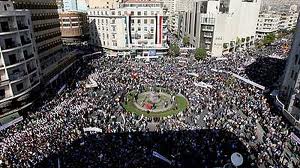 Image credit: SkyNews
Image credit: SkyNews
"We are extremely concerned that lives are endangered as a result of this article based on WikiLeaks," a senior Obama administration official told Fox News Monday morning. "The concern regards what (the) Syrians might do to those that work for (Barada), given that (Assad and his security forces) are prone to crack down and could well use this as an excuse -- blaming it on foreigners."
It is unfortunate that it took a Washington Post article on US involvement in Syria for the US government to feel concern, and that it chose to do so based on the disclosure of their actions rather than the actions. US State cables published by the Washington Post have illustrated reason for concern over US involvement for a very long time, and have also shown that US actions have been known to the Syrian government for a very long time.
Cable 09DAMASCUS306 dated April 28, 2009 states: "The SARG would undoubtedly view any U.S. funds going to illegal political groups as tantamount to supporting regime change. This would inevitably include the various expatriate reform organizations operating in Europe and the U.S., most of which have little to no effect on civil society or human rights in Syria."
As related in cable 09DAMASCUS477 dated July 8, 2009, it did not take the publication of the US State cables for the Syrian government to become aware of US activity. "... report begs the question of how much and for how long SARG has known about Democracy Council operations in Syria and, by extension, the MJD's participation. Reporting in other channels suggest the Syrian Muhubarat may already have penetrated the MJD and is using MJD contacts to track U.S. democracy programming. If the SARG does know, but has chosen not to intervene openly, it raises the possibility that the SARG may be mounting a campaign to entrap democracy activists receiving illegal (under Syrian law) foreign assistance."
 Former Egyptian president Hosni Mubarak will be detained for 15 days, according to the facebook page of Egypt's prosecutor general, on accusations of corruption and abuse of authority. The facebook statement says the investigation will cover the orders to open fire on demonstrators (covered here on WL Central) as well as any abuse of the president's authority for personal gain.
Former Egyptian president Hosni Mubarak will be detained for 15 days, according to the facebook page of Egypt's prosecutor general, on accusations of corruption and abuse of authority. The facebook statement says the investigation will cover the orders to open fire on demonstrators (covered here on WL Central) as well as any abuse of the president's authority for personal gain.
Earlier today Mubarak was reported by state TV to be taken into intensive care after suffering heart problems following questioning over the killing of protesters and embezzling of public funds. Mubarak's sons sons Alaa and Gamal have also been detained for investigation regarding corruption and violence.
The announcement is a victory for protesters who early on Saturday filled Tahrir Square with hundreds of thousands for one of the biggest protests since President Hosni Mubarak was ousted. Protesters demanded a more thorough removal of the corrupt old regime and a transfer of power from the military council to civilian rule. Thirteen people are reported wounded and two dead from an attempt by the army to clear the protesters. "All of us, the people, the army and the government, feel regret for the events of last Saturday," the Egyptian prime minister, Essam Sharaf said on state TV on Monday.
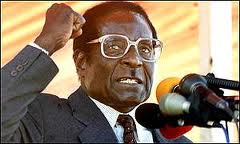 In anticipation of the upcoming election in Zimbabwe, president Robert Mugabe and his ZANU PF party have, in the words of Human Rights Watch's Africa director Daniel Bekele, "resorted to its old campaign tactics of suppressing political opponents by harassment and intimidation." Human Rights Watch has called for them to end their harassment and arbitrary arrests of civil society activists and political opponents, as reported recently on WL Central.
In anticipation of the upcoming election in Zimbabwe, president Robert Mugabe and his ZANU PF party have, in the words of Human Rights Watch's Africa director Daniel Bekele, "resorted to its old campaign tactics of suppressing political opponents by harassment and intimidation." Human Rights Watch has called for them to end their harassment and arbitrary arrests of civil society activists and political opponents, as reported recently on WL Central.
This Saturday, police lobbed tear gas canisters into church windows at St Peters Kubatana in Highfield, reportedly sending parishioners jumping out through windows, and baton-charged the service. Mugabe is a devout Catholic who attended the Pope's funeral in 2005 despite an EU travel ban. Pius Ncube, the Catholic Archbishop of Bulawayo, and an outspoken critic of Mugabe, said of the trip, "That man will use any opportunity to fly to Europe to promote himself. ... The secretary of state might be rather too busy right now to talk to him, but when someone in the family has died, you appreciate all the sympathy you can get from all people, even murderers, crooks and thieves like Mugabe." Pius Ncube was exposed in 2007 as having a relationship with a married woman, and subsequently forbidden by the Vatican from speaking out about the Mugabe government. Mugabe, a violent anti-homosexual, has enjoyed a high level of cooperation from the Vatican, who also allowed his marriage to his second wife Grace, who was not a Catholic.
The prayer meeting was called to remember the assault on Mugabe political opponent Morgan Tsvangirai and other civic leaders by Mugabe supporters on March 11, 2007. After the police attack, the meeting was taken to Glen Norah church where dozens of people were injured by riot police during a turnout of thousands, including Tsvangirai. Police threw more than thirty teargas canisters to disperse the people, assaulted some people who attended the prayer service including children and made Glen Norah impassable with the chaos.
Update: Six Syrian human rights groups, including the Syrian National Organisation for Human Rights, the Kurdish Committee for Human Rights and the Defence Committee for Democratic Freedom and Human Rights., released a joint statement saying twenty-six people were killed in Dara'a yesterday at the funerals of protesters killed the day before, and two more were shot dead in Homs yesterday. There are also many reports of people detained and missing.
Probably the best collection of youtube videos of the protests, organized by city, here.
Mass funerals were held in Syria today for the protesters killed yesterday, now reported as 37 by the National Organisation for Human Rights. In Dara'a, security forces fired on the mourners as thousands assembled near the old Omari mosque where six people were killed on March 22 and where the most violence has resulted since.
The UN Secretary-General's office has posted notes from a conversation he had today with President Bashar al Assad of Syria.
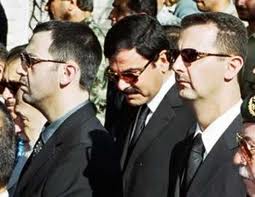 Bashar al-Assad (right) with his brother Maher al-Assad (left) and brother-in-law Assef Shawkat (center) in 2000.
Bashar al-Assad (right) with his brother Maher al-Assad (left) and brother-in-law Assef Shawkat (center) in 2000.
Update:Syrian state TV has aired footage of masked gunmen firing on protesters and police. There are many similar videos in different situations on the internet, and different ideas of who the snipers are, Syrian security forces, protesters, or outside forces.
Today protesters in Dara'a destroyed a statue of president Bashar al-Assad's older brother Basil al-Assad and reportedly burnt down the State TV building in Dara'a and set fire to a Baath Party outpost. Al Jazeera's correspondent Cal Perry reports that the army has now been deployed in large numbers to Dara'a. The government's earlier decision to arm the police force with electric batons instead of live ammunition was reversed today.
Syrian state TV (translated by Al Jazeera) said repeatedly today: Over the past Fridays there were a lot of demonstrations in which armed groups used weapons to kill people and security forces - and though we understand that protesting is a right of the population, we can no longer allow chaos to take place and official buildings to be destroyed. So we will use all the means to stop the chaos from taking place.
Protesters are calling for people to come out tonight in great numbers in other cities to take the pressure off of Dara'a.
Video of snipers from AP
The UK's Independent is reporting from an Eritrean priest who tracks migrants across the Mediterranean that the bodies of murdered African migrants have been washing ashore in Libya. Father Mussie Zerai, who is in Rome, says that his contacts in Tripoli have seen five bodies in a hospital that are thought to be part of a group of approximately 335 predominantly Eritrean and Ethiopian refugees who have been missing since a few hours after departing Tajura on March 22 in a boat driven by a smuggler. “There are five bodies in total, two women, two boys and an Egyptian who we believe was the boat’s captain. Their bodies have gunshot wounds in them. Somebody shot them after they left Libya. ... This is a murky affair which must be investigated.” Father Zerai is quoted as saying.
A relative of two of the passengers reported them missing to Father’s Zerai’s organisation, Agenzia Habeshia, and human rights organization Everyone Group who say they immediately alerted the authorities to ask for patrols to be sent into international waters and requested the intervention of the UN High Commissioner for Refugees. “This morning, after two weeks of inaction and indifference from the authorities and international institutions, we heard from Don Mussie Zerai that the bodies of those migrants, riddled with bullets, are being washed ashore,” Roberto Malini, Matteo Pegoraro and Dario Picciau, co-presidents of the international humanitarian organization EveryOne Group reported. “It would appear that the boat carrying the refugees was attacked in the Mediterranean, and that the shots were so rapid that the migrants did not have time to sound the alarm with the satellite phone they’d taken on board."
As WL Central reported on Tuesday, in an adjournment debate in the UK House of Commons on Monday evening, Henry Bellingham, parliamentary undersecretary at the Foreign and Commonwealth Office, confirmed that Bradley Manning acquired British citizenship at birth.
The video of the debate is now available here.
The opening argument of MP Ann Clwyd (Labour - Cynon Valley) is notable for emphasizing that Bradley Manning's citizenship is not the sole reason a government of laws should be concerned about his treatment. She had earlier raised the interpretation of the British Nationality Act with the foreign minister in committee and in the Commons, but in this address, she reminds the government of its commitment to speak out against human-rights abuses everywhere, regardless of the victim's nationality. She also asks for assurances that Manning's British family will receive UK consular assistance in their future attempts to visit him at the US Marine base at Quantico, Virginia.
Bellingham responds affirmatively on all three counts -- on the strict interpretation of the Nationality Act (with qualifications based on Manning's right to privacy), on the commitment of the UK government to make formal representations to other nations concerning human-rights abuses, and on the willingness of the government to assist Manning's family in their attempts to visit him.
Previous WL Central coverage of Bradley Manning
WL Central action page for Bradley Manning
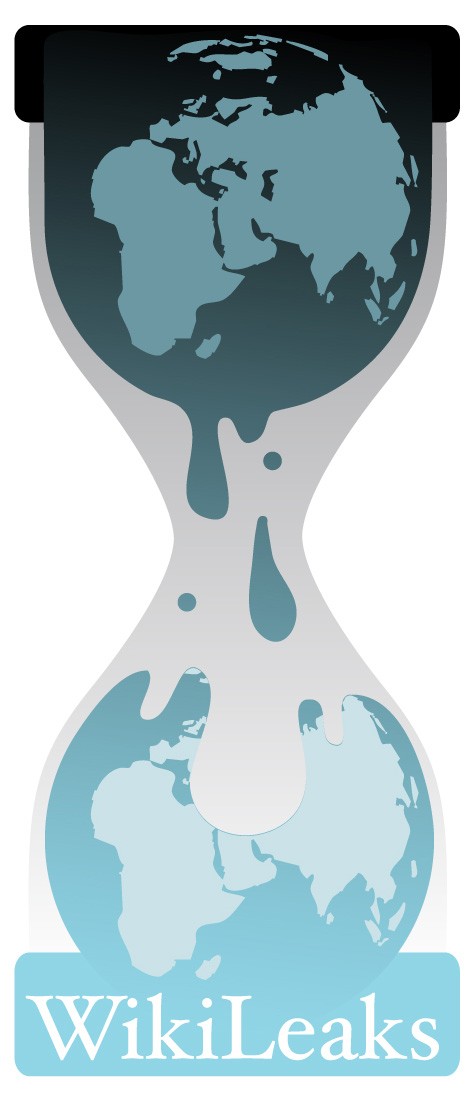 At the end of today's sitting, the UK Parliament at Westminster will debate the treatment of Bradley Manning, a debate that will be opened by Ann Clwyd (Labour-Cynon Valley).
At the end of today's sitting, the UK Parliament at Westminster will debate the treatment of Bradley Manning, a debate that will be opened by Ann Clwyd (Labour-Cynon Valley).
Clwyd has raised Manning's plight and the concern for him of her constituents in Wales before in committee and in the Commons, and has received considered and relatively positive responses from both the foreign secretary and the leader in the Commons, as we reported here. Manning's mother is a Welsh citizen of the UK.
No time is given for the start of the debate. It is scheduled to go on until 10:30 pm or for half an hour, whichever is later.
Via @GregMitch on Twitter.
Amidst the cacophony of war crimes and crimes against humanity in Libya perpetrated by forces loyal to Muammar Gadaffi - which this writer finds unbearable - (and for which the command principle at least holds him ultimately responsible) including murders, torture, bombing and artillery destruction of civilian infrastructure and the like, the case of Eman al Obaidi stands alone as one of particular importance as well as nauseating repugnance.
Firstly we must acknowledge the presumption of innocence within the particular context of Eman’s allegations. This was brought to my attention by a tweet from Bianca Jagger who said on 28th March:
I have the most enormous respect for Bianca Jagger and found her vehement statement on this matter appropriate on the face of the circumstances in the arena of probabilities but not necessarily in the arena of presumptive law. In one respect the presumption needed further explanation: the LA Times headlines clearly were missing some nuance in that their traditional headline using the word ‘alleged” implicitly acknowledged the presumption, but they erred in not commenting contextually – the probability arena.
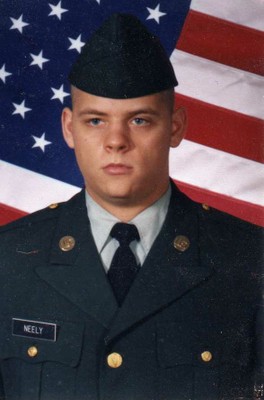 This is our first interview in a series of interviews with former Guantanamo Bay detention camp guards and detainees.
This is our first interview in a series of interviews with former Guantanamo Bay detention camp guards and detainees.
Several current and former U.S. soldiers have expressed interest in speaking publicly about their experience at Guantanamo: including a CIA psychologist, interrogators, guards, and medical personnel. They are disgusted with what they witnessed or took part in at Guantanamo, but declined my request for an interview, because they fear opening themselves up to prosecution by the US government, which required them to sign a Non Disclosure Agreement .
I was also told that many are afraid of being prosecuted for war crimes, since low level soldiers are often the ones who shoulder the brunt of punishment and backlash; whereas higher ranking officials seem to escape scrutiny completely.
Brandon Neely, has been a vocal critic of both Guantanamo Bay, and the war in Iraq. And he speaks from experience, since he was both a guard at Guantanamo during the the first six months the camp was open, and served in Iraq during the US invasion. In the course of his advocacy, he has offered testimony to the Center for Human Rights in the Americas, and appeared in numerous articles and on television programs, including a BBC program that recounts how he contacted two of his former prisoners on Facebook to express remorse for what he did. You can also find him, where I did, on twitter, @BrandonTXNeely.
*Apologies for the first seconds of poor audio quality.
Listen to Part 1 of 8 here
Transcript
 This is our first interview in a series of interviews with former Guantanamo Bay detention camp guards and detainees.
This is our first interview in a series of interviews with former Guantanamo Bay detention camp guards and detainees.
Several current and former U.S. soldiers have expressed interest in speaking publicly about their experience at Guantanamo: including a CIA psychologist, interrogators, guards, and medical personnel. They are disgusted with what they witnessed or took part in at Guantanamo, but declined my request for an interview, because they fear opening themselves up to prosecution by the US government, which required them to sign a Non Disclosure Agreement .
I was also told that many are afraid of being prosecuted for war crimes, since low level soldiers are often the ones who shoulder the brunt of punishment and backlash; whereas higher ranking officials seem to escape scrutiny completely.
Brandon Neely, has been a vocal critic of both Guantanamo Bay, and the war in Iraq. And he speaks from experience, since he was both a guard at Guantanamo during the the first six months the camp was open, and served in Iraq during the US invasion. In the course of his advocacy, he has offered testimony to the Center for Human Rights in the Americas, and appeared in numerous articles and on television programs, including a BBC program that recounts how he contacted two of his former prisoners on Facebook to express remorse for what he did. You can also find him, where I did, on twitter, @BrandonTXNeely.
 This is our first interview in a series of interviews with former Guantanamo Bay detention camp guards and detainees.
This is our first interview in a series of interviews with former Guantanamo Bay detention camp guards and detainees.
Several current and former U.S. soldiers have expressed interest in speaking publicly about their experience at Guantanamo: including a CIA psychologist, interrogators, guards, and medical personnel. They are disgusted with what they witnessed or took part in at Guantanamo, but declined my request for an interview, because they fear opening themselves up to prosecution by the US government, which required them to sign a Non Disclosure Agreement .
I was also told that many are afraid of being prosecuted for war crimes, since low level soldiers are often the ones who shoulder the brunt of punishment and backlash; whereas higher ranking officials seem to escape scrutiny completely.
Brandon Neely, has been a vocal critic of both Guantanamo Bay, and the war in Iraq. And he speaks from experience, since he was both a guard at Guantanamo during the the first six months the camp was open, and served in Iraq during the US invasion. In the course of his advocacy, he has offered testimony to the Center for Human Rights in the Americas, and appeared in numerous articles and on television programs, including a BBC program that recounts how he contacted two of his former prisoners on Facebook to express remorse for what he did. You can also find him, where I did, on twitter, @BrandonTXNeely.
 This is our first interview in a series of interviews with former Guantanamo Bay detention camp guards and detainees.
This is our first interview in a series of interviews with former Guantanamo Bay detention camp guards and detainees.
Several current and former U.S. soldiers have expressed interest in speaking publicly about their experience at Guantanamo: including a CIA psychologist, interrogators, guards, and medical personnel. They are disgusted with what they witnessed or took part in at Guantanamo, but declined my request for an interview, because they fear opening themselves up to prosecution by the US government, which required them to sign a Non Disclosure Agreement .
I was also told that many are afraid of being prosecuted for war crimes, since low level soldiers are often the ones who shoulder the brunt of punishment and backlash; whereas higher ranking officials seem to escape scrutiny completely.
Brandon Neely, has been a vocal critic of both Guantanamo Bay, and the war in Iraq. And he speaks from experience, since he was both a guard at Guantanamo during the the first six months the camp was open, and served in Iraq during the US invasion. In the course of his advocacy, he has offered testimony to the Center for Human Rights in the Americas, and appeared in numerous articles and on television programs, including a BBC program that recounts how he contacted two of his former prisoners on Facebook to express remorse for what he did. You can also find him, where I did, on twitter, @BrandonTXNeely.
 This is our first interview in a series of interviews with former Guantanamo Bay detention camp guards and detainees.
This is our first interview in a series of interviews with former Guantanamo Bay detention camp guards and detainees.
Several current and former U.S. soldiers have expressed interest in speaking publicly about their experience at Guantanamo: including a CIA psychologist, interrogators, guards, and medical personnel. They are disgusted with what they witnessed or took part in at Guantanamo, but declined my request for an interview, because they fear opening themselves up to prosecution by the US government, which required them to sign a Non Disclosure Agreement .
I was also told that many are afraid of being prosecuted for war crimes, since low level soldiers are often the ones who shoulder the brunt of punishment and backlash; whereas higher ranking officials seem to escape scrutiny completely.
Brandon Neely, has been a vocal critic of both Guantanamo Bay, and the war in Iraq. And he speaks from experience, since he was both a guard at Guantanamo during the the first six months the camp was open, and served in Iraq during the US invasion. In the course of his advocacy, he has offered testimony to the Center for Human Rights in the Americas, and appeared in numerous articles and on television programs, including a BBC program that recounts how he contacted two of his former prisoners on Facebook to express remorse for what he did. You can also find him, where I did, on twitter, @BrandonTXNeely.
 This is our first interview in a series of interviews with former Guantanamo Bay detention camp guards and detainees.
This is our first interview in a series of interviews with former Guantanamo Bay detention camp guards and detainees.
Several current and former U.S. soldiers have expressed interest in speaking publicly about their experience at Guantanamo: including a CIA psychologist, interrogators, guards, and medical personnel. They are disgusted with what they witnessed or took part in at Guantanamo, but declined my request for an interview, because they fear opening themselves up to prosecution by the US government, which required them to sign a Non Disclosure Agreement .
I was also told that many are afraid of being prosecuted for war crimes, since low level soldiers are often the ones who shoulder the brunt of punishment and backlash; whereas higher ranking officials seem to escape scrutiny completely.
Brandon Neely, has been a vocal critic of both Guantanamo Bay, and the war in Iraq. And he speaks from experience, since he was both a guard at Guantanamo during the the first six months the camp was open, and served in Iraq during the US invasion. In the course of his advocacy, he has offered testimony to the Center for Human Rights in the Americas, and appeared in numerous articles and on television programs, including a BBC program that recounts how he contacted two of his former prisoners on Facebook to express remorse for what he did. You can also find him, where I did, on twitter, @BrandonTXNeely.
Theme by Danetsoft and Danang Probo Sayekti inspired by Maksimer